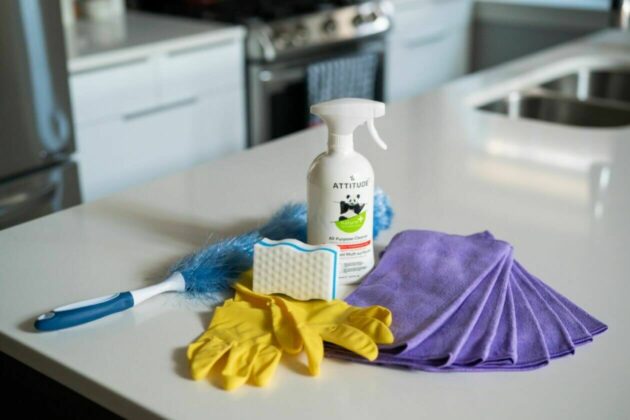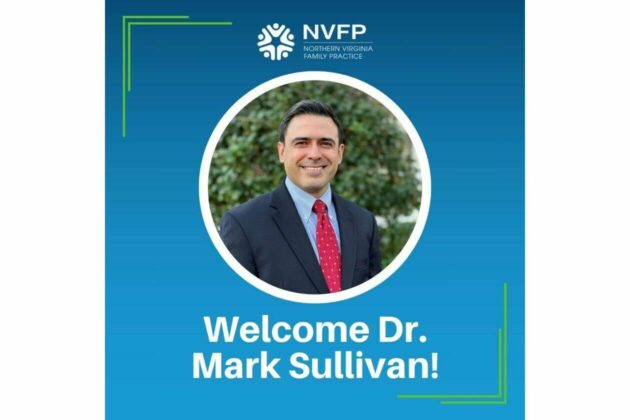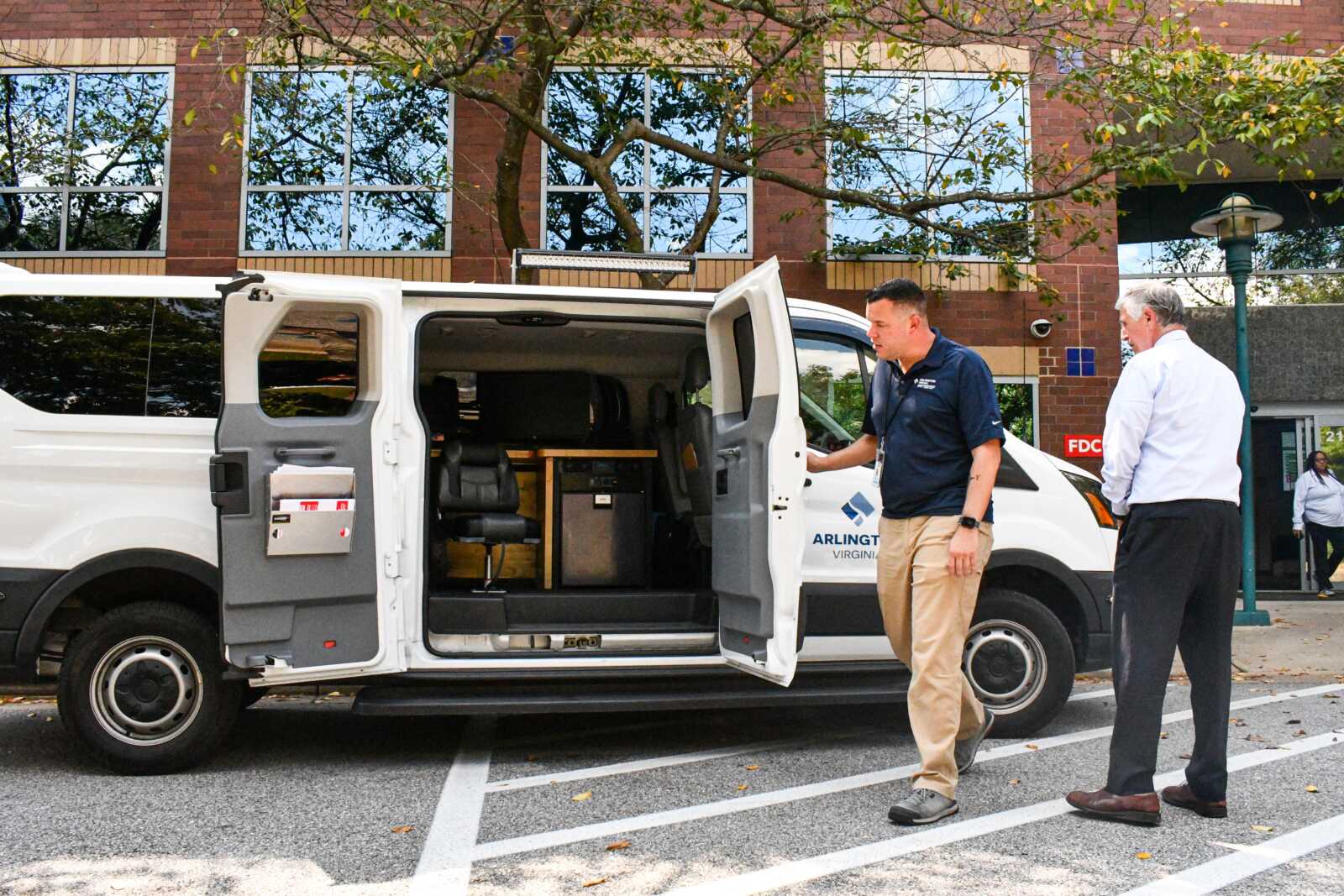Editor’s Note: Healthy Paws is a column sponsored and written by the owners of Clarendon Animal Care, a full-service, general practice veterinary clinic and winner of a 2017 Arlington Chamber of Commerce Best Business Award. The clinic is located 3000 10th Street N., Suite B. and can be reached at 703-997-9776.
Winter is finally here and we cannot stress enough the importance of keeping pets in a warm, protected environment this time of year. So, for this week’s post, we’re reminding everyone about some winter weather tips for our canine and feline companions. Because, even though our four-legged family members have fur, they too are susceptible to frostbite and hypothermia (low body temperature) and other winter-related ailments.
What is frostbite?
Frostbite occurs when damage to the skin and underlying tissues caused by exposure to extremely cold agents and weather occurs. Sub-freezing temperatures cause constriction/narrowing of blood vessels, which after long periods of time, reduces blood flow to certain parts of the body, especially the extremities. Together, the nearly freezing temperature and reduction of blood flow can result in severe injury to the exposed tissues. This is how frostbite develops in our furry friend’s paws, ears and tails (body parts farthest from the heart and most susceptible to becoming cold). Keep in mind young animals outdoors, or those in poor body condition, are at greater risk.
- Signs/symptoms of frostbite
- Often, mild cold injury to the extremities may go undetected (toe tips, ear tips, tail tips) until changes to the skin are noted, sometimes days later
- Acutely affected animals may have pale gray or bluish areas of skin that are cool to the touch
- Body parts may be numb, overly sensitive to touch or painful
- As the affected areas of the body thaw, the tissues may become red or swollen and painful
- Skin may blister or ulcerate
- Days after the frostbite has occurred, tissues may appear shrunken and discolored and may begin to slough if the tissue becomes necrotic or dies
- Days to weeks after injury, hair loss and sloughing may occur
- What to do if your pet is suffering from hypothermia (and at risk for frostbite)
- Remove any snow from in between the paws pads
- Dry your pet off if their hair coat is wet or damp
- Wrap your pet in a blanket or towel and contact your primary veterinarian, or the closest emergency hospital for further care and diagnostics
- Prevention
- No matter how thick-coated your furry friend is, no pet should be left outside for long periods of time in below-freezing weather.
For those short-coated pets, this is a perfect time of the year to play dress-up with the pet winter sweaters and coats. Some pets may also benefit from booties to protect their feet. It’s best to have a few options since wet clothing can actually be more detrimental to the body, so after coming from outside, remove or change your pet’s winter gear.
Other winter preparation/safety tips
A warm vehicle engine can be an appealing heat source for outdoor and feral cats as well as wildlife — but that can lead to some pretty disastrous consequences. Check underneath your car, bang on the hood, and honk the horn before starting the engine to encourage wanna-be hitchhikers to abandon their roost under the hood.
Pay special attention to your pets feet. Ice melt and collections of snow/ice can be very irritating and cause inflammation and pain between the toes. Booties, pad wax and cleaning between toes after coming inside can be very helpful to prevent irritation and to prevent/remove potential toxins (such as antifreeze).
Speaking of antifreeze — even small amounts can be deadly! It’s sweet (like sugar) and so many pets will ingest it — however it can cause severe, acute kidney failure, seizures and death. Be sure to clean any spills (no matter how small) immediately.
Many pets become lost in winter because snow and ice can hide recognizable scents that might normally help your pet find his/her way back home. Make sure your pet has a well-fitting collar with up-to-date identification and contact information. A microchip is a more permanent means of identification, but it’s critical that you keep the registration up to date. Prepare a disaster/emergency kit and prepare your pet in your plans. Make sure to stock up on food, water, prescription medications in the event of a weather emergency that may leave you stranded into house.
And if it’s too cold for you outside — it’s probably too cold for the fur-family as well!
Recent Stories

Unlike our competitors, Well-Paid Maids doesn’t clean your home with harsh chemicals. Instead, we handpick cleaning products rated “safest” by the Environmental Working Group, the leading rating organization regarding product safety.
The reason is threefold.
First, using safe cleaning products ensures toxic chemicals won’t leak into waterways or harm wildlife if disposed of improperly.
Second, it’s better for you and your family. Fragrant chemicals in surface cleaners can expose you to a similar amount of pollutant particles as a busy city road, New Scientist reported.

Northern Virginia Family Practice (NVFP), known for its comprehensive concierge healthcare, is thrilled to introduce Mark Sullivan, MD as the newest member of its family medicine team.
Dr. Sullivan brings a wealth of experience in family medicine, underpinned by a passion for delivering personalized, patient-centered care. He has a distinguished background in managing various medical conditions, emphasizing preventive care, health education and chronic disease management. Dr. Sullivan is adept at employing the latest medical research and technologies to enhance patient outcomes.
Beyond his medical expertise, Dr. Sullivan is committed to the well-being of his community, demonstrating this through his active engagement in local health initiatives and educational programs. His approach to medicine is holistic, focusing on integrating physical, mental and emotional health and patient education to achieve optimal patient wellness.
Dr. Sullivan is now accepting new patients at their newly established Arlington office at 2445 Army Navy Drive, Arlington, VA, 22206. The office, known for its patient-friendly amenities and state-of-the-art medical facilities, continues to provide the exceptional, personalized care NVFP is known for in its newly upgraded Arlington location.
ACFCU’s Free Homebuying 101 Webinar: Steps to Getting Pre-Approved
Are you ready to jump into homeownership, or have you started considering it but don’t know where to start?
Financial preparation is key when thinking about purchasing your first home and the first step to getting pre-approved. Join ACFCU for
Sweeney Todd
A victim of a gross injustice that robbed him of his wife and child, Sweeney Todd sets about exacting a terrible revenge on society.








